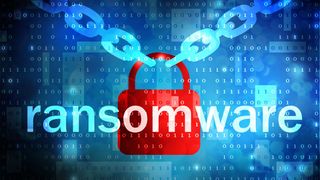US government offers $10 million reward for information on Colonial Pipeline hackers
Any information on DarkSide cybercrime group is valuable

American law enforcement agencies have issued a bounty for anyone, in any way connected to the Colonial Pipeline ransomware attack that took place in early May 2021.
According to Reuters, the US State Department is offering up to $10 million for information that could lead to the identification, or location, of any of the leaders of the cybercrime organization DarkSide, which the FBI believes is based in Russia.
The announcement comes months after the State Department promised the same reward amount for any information that could lead to the identification, or location of anyone, working on behalf of any foreign government, using cybercriminal activity against US critical infrastructure.
Paying the ransom
The Colonial Pipeline ransomware attack, which took place on May 7, 2021, resulted in a multi-day production shutdown. As a result, gas prices spiked, leading to panic-buying and fuel shortages in certain areas in the US Southeast.
"In offering this reward, the United States demonstrates its commitment to protecting ransomware victims around the world from exploitation by cybercriminals," the department said in a statement.
Colonial Pipeline allegedly paid roughly $5 million in Bitcoin to regain access to its systems, but the U.S. Justice Department managed to recover roughly half of that sum.
Following this attack, as well as the attack against one of Australia’s largest meat producers, JBS Foods, both international and state law enforcement agencies began a crackdown on ransomware operators. As a result, some of the world’s most dangerous ransomware groups disappeared from the face of the earth, while others announced they’ll be staying away from government agencies, hospitals and critical infrastructure in their operations.
Are you a pro? Subscribe to our newsletter
Sign up to the TechRadar Pro newsletter to get all the top news, opinion, features and guidance your business needs to succeed!
Due to its destructive power, the relative ease with which it can be done, as well as its financial promise, ransomware has become one of the most popular forms of cyberattacks nowadays.
You might also want to check out our list of the best firewalls right now
Sead is a seasoned freelance journalist based in Sarajevo, Bosnia and Herzegovina. He writes about IT (cloud, IoT, 5G, VPN) and cybersecurity (ransomware, data breaches, laws and regulations). In his career, spanning more than a decade, he’s written for numerous media outlets, including Al Jazeera Balkans. He’s also held several modules on content writing for Represent Communications.
